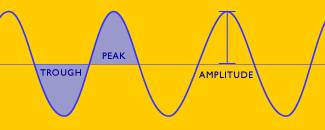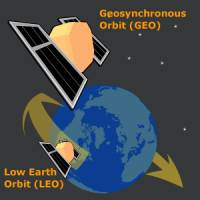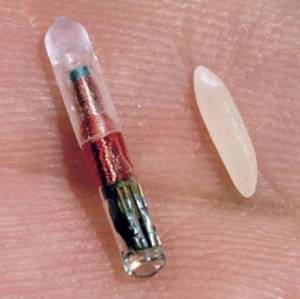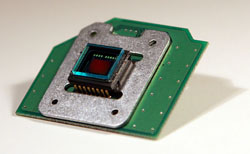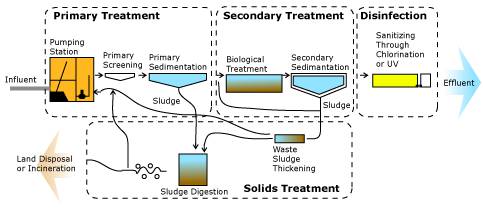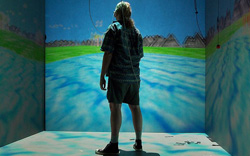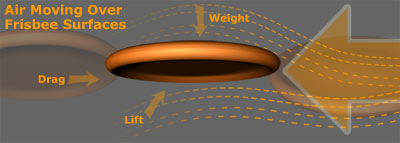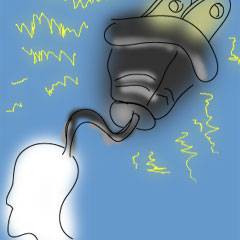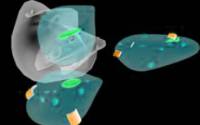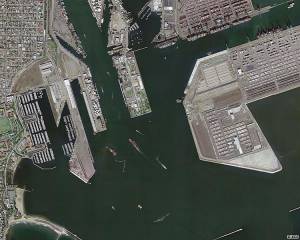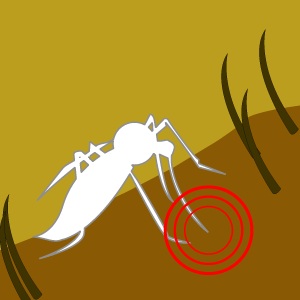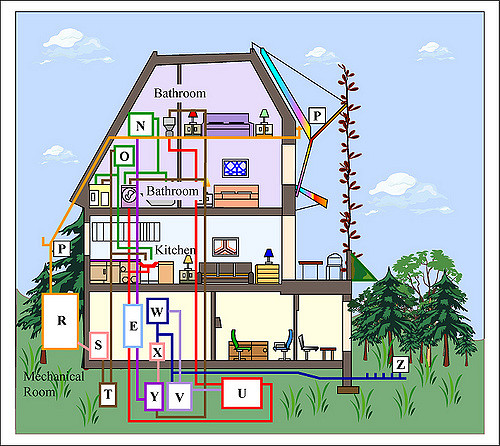If you GNU what I GNU
Category: Computer Science, Issue V, Volume V
The world of computing is a constantly evolving model of technological innovation, financial gain and ruin, and philosophical ideals. The open source revolution has placed these three branches of the industry in the spotlight, shaking the traditional foundations of the technology market. In a world of secrecy, and even deception,
The daily life of an average American is depending more and more on the Internet. Information and entertainment sites abound, but many of the billions of web pages are yet unknown. Search engines are the pipeline through which users can quickly find the content they desire. The history of online
In order to bring high-speed internet to areas where developing a traditional broadband infrastructure would be cost prohibitive, engineers have recently begun working on developing techniques for delivering broadband internet signals over the existing power supply grid. By using an entirely different frequency range, power lines can carry traditional AC
Multiple Access Schemes for Mobile Phones
Category: Communication, Computer Science, Electrical Engineering, Issue I, Volume VI
Mobile phones allow users to place calls, send text messages, and receive updates from the internet. Information from a mobile phone is sent and received by way of electromagnetic waves. All information is encoded prior to transmission, decoded upon arrival, and must be sent so that many users can share
Tele-Immersion (TI) involves the construction of a three dimensional (3D), realistic holographic environment where two or more physically separated users can communicate with each other in real-time. Existing video conferencing applications lack this dimensionality and realism. Tele-Immersion is an engineering solution to this deficiency and is made possible by combining
A collection of recently developed audio technologies allows for the creation of thin, directional sound beams. With this type of equipment, focused streams of sound can be pointed exactly where the user wants them. Directional sound technology will likely see widespread adoption in the near future as engineers continue developing
The launch of Sputnik in 1957 by the USSR marked the beginning of the satellite era. The next half-century saw new research and development that changed satellites into the useful tool of contemporary society. Modern satellites can help locate people all over the world, aid in scientific research, and perform
Radio Frequency Identification Devices (RFID) and Their Implications for the Future
Category: Computer Science, Electrical Engineering, Issue II, Volume V
Radio Frequency Identification Devices (RFID) are widely being hailed as the up-and-coming successor to barcodes. The superiority of RFID lies in its faster speed, rewriting capabilities, and the fact that the device need not be visible to be read. However, until the cost of RFID is lowered, barcodes will remain
Beer has existed for thousands of years. During its long history its popularity has changed considerably in response to technological advancements and social pressures. Although beer was created before the science behind it was understood, the process of making beer can be thought of as a series of chemical engineering
The digital image sensor is a technology used to record electronic images. The most commonly recognized application of the digital image sensor is the digital camera. In digital cameras, the image sensor is used in conjunction with a color separation device and signal processing circuitry to record images. The two
Long before the age of computers, light bulbs, automobiles, or locomotives, a revolutionary feat in engineering transformed society. This technology almost singly separates developed countries from their developing counterparts, and many Americans take it for granted. Rarely do we ever think about it when we use it, and when we
Phytoremediation
Category: Chemical Engineering, Energy, Environmental Engineering, Issue II, Volume V
The natural environment is very easily polluted by the toxic compounds contained in oil. In the past, methods for restoring contaminated areas have been expensive but largely inadequate. A recently developed decontamination process called phytoremediation uses plants along with the bacteria that live in their roots to break down the
Immersion Through Video Games
Category: Entertainment, Issue IV, Lifestyle, Volume V
Immersion is the process by which a media element entices a person to suspend their disbelief and accept what they are viewing on a screen or page as actual reality. Through non-linear dramatic elements and interaction between the player and the computer, a video game achieves a level of reality
The Frisbee
Category: Entertainment, Issue III, Most Popular, Physics, Sports & Recreation
The Frisbee, generally held to be a simple toy for children, was invented and refined in the late nineteenth century. Although it has grown in popularity since then, its general design, and thus the technique for its use, have remained fairly constant. The flight of a Frisbee is allowed and
Futuristic Rail Systems vs. the Humble Bus: An Infrastructural and Environmental Dilemma
Category: Civil Engineering, Issue II, Transportation, Volume V
Photochemical smog, created by any gasoline-powered vehicle on the road, is a major concern in Los Angeles today. Buses, despite being implemented to reduce this pollution by lessening the number of cars on the streets and freeways, are smoke-spewing machines that pose a risk to environmental and public health. They
Building Blocks of Thought: Engineering the Neuron
Category: Biomedical Engineering, Electrical Engineering, Issue II, Volume V
The brain is our body’s information processing center. It controls everything that we do, making us intelligent, conscious, and alive. The brain is made up of over 100 billion neurons. The neuron, or nerve cell, is a type of cell responsible for the body’s gathering, processing, and transmission of information.
[fusion_builder_container hundred_percent=”no” equal_height_columns=”no” menu_anchor=”” hide_on_mobile=”small-visibility,medium-visibility,large-visibility” class=”” id=”” background_color=”” background_image=”” background_position=”center center” background_repeat=”no-repeat” fade=”no” background_parallax=”none” parallax_speed=”0.3″ video_mp4=”” video_webm=”” video_ogv=”” video_url=”” video_aspect_ratio=”16:9″ video_loop=”yes” video_mute=”yes” overlay_color=”” video_preview_image=”” border_size=”” border_color=”” border_style=”solid” padding_top=”” padding_bottom=”” padding_left=”” padding_right=””][fusion_builder_row][fusion_builder_column type=”1_1″ layout=”1_1″ background_position=”left top” background_color=”” border_size=”” border_color=”” border_style=”solid” border_position=”all” spacing=”yes” background_image=”” background_repeat=”no-repeat” padding_top=”” padding_right=”” padding_bottom=”” padding_left=”” margin_top=”0px” margin_bottom=”0px” class=””
The Harp: Engineering the Perfect Sound
Category: Electrical Engineering, Entertainment, Issue IV, Material Science, Volume V
The history of the harp goes back thousands of years. The harp is regarded as the world’s oldest string instrument. It influenced the evolution of the piano, guitar, and violin. Engineering is the application of science to the art of problem solving; the harp has encompassed the ideals of engineering.
Bamboo: An Alternative Movement
Category: Building & Architecture, Energy, Issue IV, Material Science, Volume V
Bamboo is emerging as an alternative resource to other types of wood. In the past, people intuitively used it as a basic material for making many different household objects and small structures. However, ongoing research and engineering efforts are enabling us to realize bamboo’s true value as a renewable, versatile
It is not uncommon to see distinctions drawn between civil and environmental engineering projects. Preconceptions are regularly formed over what truly constitutes an environmentally friendly task, and these preconceptions rarely include the work of civil engineers. However, many engineering wonders exist primarily due to the interaction between these two disciplines.
A Genetic Solution to Malaria: More Harm Than Good?
Category: Biomedical Engineering, Health & Medicine, Issue III, Volume V
Malaria continues to plague peoples worldwide, transmitted by a viral parasite carried by mosquitoes. Vaccines and pesticides have combated the disease in the past, but the disease adapts and becomes resistant to drugs, and pesticides such as DDT hurt the environment while killing mosquitoes. Geneticists have developed a new solution
The advancement of technology and the preservation of the environment do not have to be opposing goals. When taken together, these objectives provide the basis for sustainable technologies that reduce resource consumption and pollution. Through the use of these technologies and a little creative planning, a building can be constructed
Improving the Bicycle
Category: Issue I, Lifestyle, Transportation, Volume V
Bicycles have been around for many years and are constantly being researched and improved. Many disciplines of science and engineering are necessary in making the bicycle what it is today and will be in the future. Since the appearance of the first bicycle in the late 1700s, this machine has



